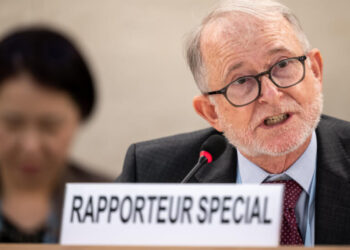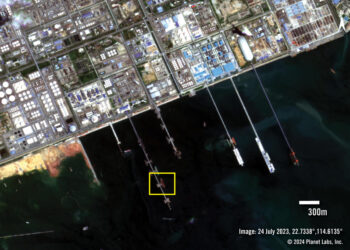Human Lives Human Rights: The widespread use of economic sanctions constitutes one of the great paradoxes of contemporary American foreign policy. Sanctions are frequently criticized, even derided. “Sanctions don’t work” is an oft-heard refrain. At the same time, economic sanctions are fast becoming the policy tool of choice for the United States in the post-Cold War world.
The United States now maintains economic sanctions against literally dozens of countries. One recent study listed no less than 35 countries that had been targeted by new American sanctions from 1993 to 1996 alone.[1] What is critical, however, is not just the frequency with which economic sanctions are used but their importance. Increasingly, sanctions define or dominate a number of significant relationships and policies.
Sanctions–predominantly economic but also political and military penalties aimed at a state or other entities to alter political and/or military behavior–are employed for a wide range of purposes. American reluctance to use military force is another motivation–particularly in those instances in which U.S. interests are not deemed sufficiently important to justify casualties and high financial costs. No other country uses economic sanctions to this extent.
Cuba is the case in which sanctions have been in effect for the longest period. It is also a case in which the United States stands alone, where Congress and public opinion have played a major role, and where (similarly now to Iran and Libya) U.S. law (the Helms-Burton legislation) would sanction not just Cuba but those countries, firms, and individuals who choose not to comply with U.S. sanctions. It also highlights one of the basic foreign policy questions of our era, namely, whether economic sanctions and policies of denial are more likely to promote desired political and economic changes in a society than policies of constructive, conditional engagement in which political and economic incentives (including the removal of sanctions) also are used to bring about desired reform.
Haiti demonstrates the phenomenon of unintended consequences, in this case, the torrent of refugees who headed for Florida. Haiti, though, is an important case for another reason. It highlights what can be the blunt nature of the sanctions tool. Political leaders and other elites often are able to shield themselves from the worst effects of broad sanctions, something most of the population is unable to do. Haiti also highlights the potential for sanctions to be designed so as to narrow their impact on select individuals or groups in a society.
Iraq presents an almost archetypical case of “ideal” sanctions. Iraq’s 1990 invasion and occupation of Kuwait constituted a clear-cut violation of a widely held international norm. Sanctions were introduced with full U.N. Security Council backing. Iraq’s economy was highly dependent on the ability to sell oil. The sanctions were comprehensive and enforced militarily. Still, sanctions proved unable to persuade Saddam Hussein to vacate Kuwait, even when the alternative was war with the United States and a powerful international coalition. This is not the same as saying the sanctions failed completely, however, especially as regards those additional sanctions levied against Iraq in the aftermath of Desert Storm.

















